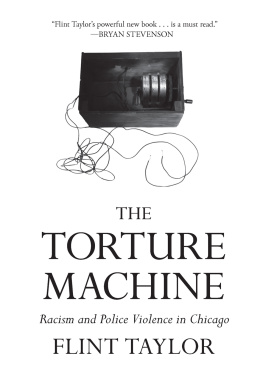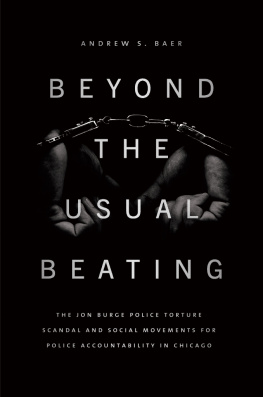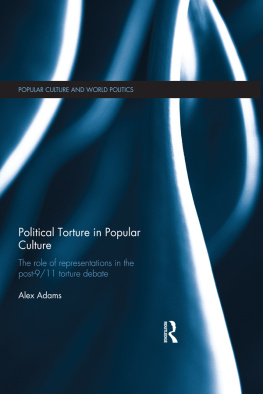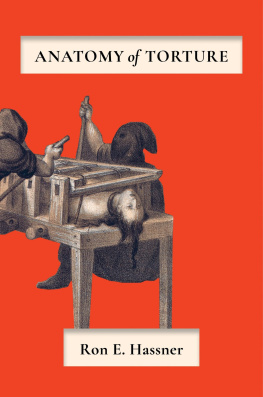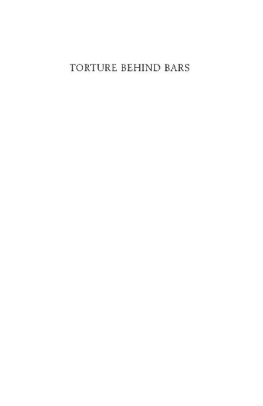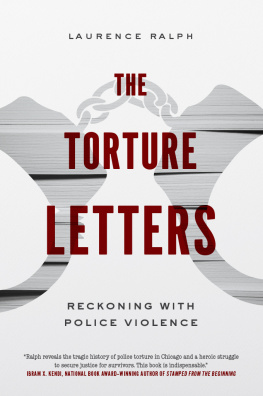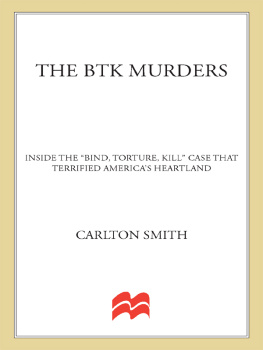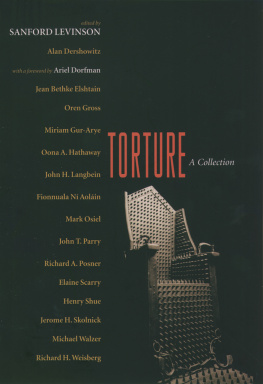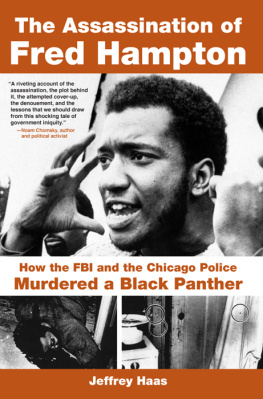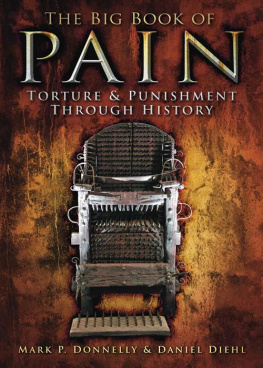Praise for The Torture Machine
If it was not for Flint Taylor I would still be languishing in prison. He brought hope to a hopeless place. All the struggles that we lived through are captured in perfect detail here. Thank you, Flint for writing this book.
Darrell Cannon, Chicago police torture survivor
It is impossible to fully understand the continuing challenges created by unjustifiable police violence against Black and Brown people without appreciating the historical backdrop that sustains this national crisis. Flint Taylors powerful new book, informed by his decades as one of the most effective advocates addressing these issues, is a must read.
Bryan Stevenson, bestselling author of Just Mercy
If you want to understand what actually happened to those Jon Burge tortured, read this book. Torture Machine is the truth for all to read. Flint Taylor and this book are a godsend.
Anthony Holmes, Chicago police torture survivor
This book is a powerful testament to [the survivors] courage and determination and is essential reading for anyone wanting to understand what can happen when those in power condone violations of civil and constitutional rights for political expediency.
Mary E. Howell, preeminent New Orleans civil rights attorney
A stunning, sweeping history of police violence in Chicago and Flint Taylors lifelong pursuit of racial justice. Quite literally the work of a lifetime.
Alison Flowers, author of Exoneree Diaries: The Fight for Innocence, Independence, and Identity
An indispensable and searing account of the barbarous regime of policing under Jon Burge and the ongoing fight for justice.
Martha Biondi, author of To Stand and Fight: The Struggle for Civil Rights in Postwar New York City, and James Thindwa, labor activist and board member, In These Times
An unsparing dissection of foundational racism in the criminal justice system. It could not be more timely.
Jamie Kalven, investigative reporter and executive director of the Invisible Institute
Powerfully and excitingly presented, Flint Taylor narrates the legal battle that he pioneered and pursued for more than thirty years to expose and ultimately incarcerate Chicago police commander and torturer Jon Burge.
Flints work with others at the Peoples Law Office has led to the freeing of many wrongly convicted torture survivors, the paying of more than $40 million in damages to these survivors, and reparations that include the teaching of the torture scandal in the Chicago public schools.
Flints dogged legal advocacy exposed the racist pathology of the Chicago Police Department as well as the collaboration and support by those at the highest level of city and county government. It is an honor and inspiration to have worked with Flint through the first twenty years of these legal battles.
Jeff Haas, author of The Assassination of Fred Hampton: How the FBI and the Chicago Police Murdered a Black Panther
Flint Taylors searing memoir is a chilling reminder of American law enforcements enduring commitment to silencing Black voices and torturing Black bodies in the name of order. It is also a most powerful and moving account of the courageous community members, activists, and movement lawyers who have given their lives to make sure that those same voices are heard, and that some measure of justice can be had. From the moment, fifty years ago, when law enforcement murdered twenty-one-year-old Fred Hampton as he slept in bed, to the more recent fight to hold Jon Burge and the Chicago PD accountable for brutalizing hundreds of people in their custody over the last thirty years, The Torture Machine is essential reading for all who care about this countrypast and future.
Heather Ann Thompson, Pulitzer Prizewinning author of Blood in the Water: The Attica Prison Uprising of 1971 and Its Legacy
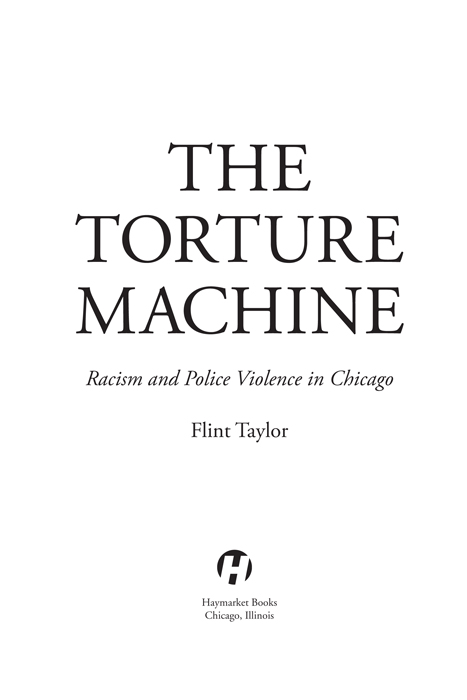
2019 Flint Taylor
Published in 2019 by
Haymarket Books
P.O. Box 180165
Chicago, IL 60618
773-583-7884
www.haymarketbooks.org
ISBN: 978-1-60846-896-6
Distributed to the trade in the US through Consortium Book Sales and Distribution (www.cbsd.com) and internationally through Ingram Publisher Services International (www.ingramcontent.com).
This book was published with the generous support of Lannan Foundation and Wallace Action Fund.
Special discounts are available for bulk purchases by organizations and institutions. Please call 773-583-7884 or email for more information.
Cover design by Rachel Cohen
Library of Congress Cataloging-in-Publication data is available.

To Pat, Kate, Laurie, and Wally;
to my sisters and brothers of the Peoples Law Office;
to the survivors of Chicago police torture and their families
To the memory of my parents, Elly and Flint Sr.
And to the spirit of Fred Hampton and his family
If you dare to struggle, then you dare to win, if you dare not
to struggle, then, goddamnit, you dont deserve to win!
Fred Hampton, Illinois Black Panther Party
chairman, November 1969
CHAPTER 1
Murder by Darkness
The Assassination of Fred Hampton and Mark Clark
The call came in the early morning hours of December 4, 1969. Come to the crib was the command. The police have murdered Chairman Fred. I was a second-year law student at Northwestern Law School, working with a group of young lawyers, law students, and legal workers in a highly unusual law firm, founded just months before. Our firm, located in a converted sausage shop on Chicagos north side, was grounded in principles of collectivity, and, inspired by our Black Panther Party clients, we named it the Peoples Law Office. As young radicals, we devoted ourselves to aggressively fighting, in the courtrooms of Cook County, Illinois, against racial injustice and the war in Vietnam. Our clients also included a revolutionary Puerto Rican organization, the Young Lords; a radical organization of white youth called Rising Up Angry; the Weatherman faction of the Students for a Democratic Society; and, most notably, the charismatic young chairman of the Chicago chapter of the Black Panther Party, Fred Hampton.
After I stopped at the law school to pull fellow student Jack Welsh out of class, we drove to the small west side Panther apartment known to us as the chairmans crib. The car radio was blaring that the Panthers and the police had engaged in a shootout that would have done Al Capone proud. Fred and Peoria chapter chairman Mark Clark were dead, several of the seven survivors were wounded and hospitalized, and the others were in jail. All the surviving Panthers had been charged with attempted murder.
Jack and I entered the bloody, bullet-riddled apartment. The raiding officers had left it unsealed, inexplicably, after the pre-dawn attack. The plasterboard walls looked like Swiss cheese, ripped by scores of bullets from police weapons that, as we soon learned, included a machine gun, a semiautomatic rifle, and several shotguns. A large pool of blood stained the floor at the doorway where Freds body had been dragged after he was shot in the head, and there were fresh bloodstains on all the beds in the apartment. Shock and grief soon met with the dawning realization that the police claims of a shootout were bold-faced lies. We were looking at a murder scene.

